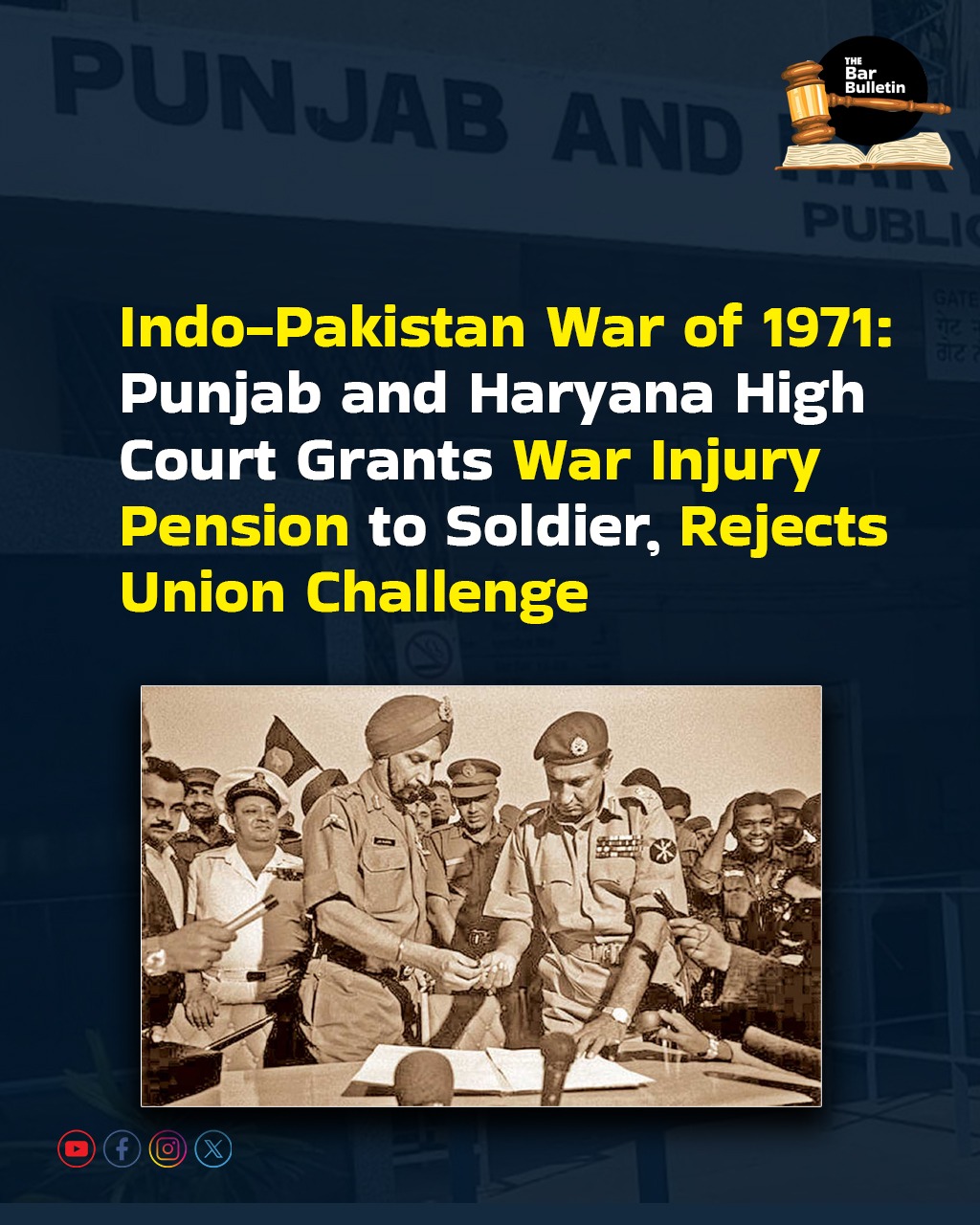The Punjab and Haryana High Court at Chandigarh dismissed a writ petition filed by the Union of India challenging an Armed Forces Tribunal, Regional bench, Chandigarh order that granted war injury pension benefits to a 1971 Indo-Pak war Soldier, including liberalized pension in favor of the widow, following the soldier’s death. The Division Bench comprising Justice Harsimran Singh Sethi and Justice Vikas Suri upheld the Tribunal’s decision granting retrospective pension benefits despite a 44-year delay in filing the claim.
The case arose from a war injury sustained by the Ex-Sepoy during the December 1971 Indo-Pak war when a bomb from the Pakistan side exploded near him, causing loss of eyesight due to splinters, heavy smoke and dust, which forced his invalidation from military service. It was submitted that the disability incurred was chronic Trachoma III and IV assessed at 20% and eyes with Macular Haemorrhage left eye at 12.91%, compositely assessed at 20% for two years. However, it was contended that despite the war-time injury, it was held to be neither attributable nor aggravated by military service, though an appeal option was mentioned but not pursued at that time.
The Union argued that the claim raised by the Ex-sepoy after 44 years from the date of rejection by PCDA (P) was clearly barred by limitation and should not have been allowed. It was further contended that the rounding off of disability from 20% to 50% by the Tribunal was incorrect and the impugned order dated August 23, 2023 should be set aside.
The Court noted that in 2017, an O.A was filed by the soldier, and the injuries suffered by the husband of respondent No.1 during the Indo-Pak war remained unrebutted by the Union. It was evident that the injuries were caused by a bomb explosion in the 1971 war, resulting in loss of eyesight and other ailments. The Court affirmed that nothing on record explained why the disability was not considered attributable to military service, and any injury sustained during war, particularly loss of eyesight leading to invalidation, could not be regarded as unrelated to military service.
It was observed that the Union had not been able to dispute the said proposition of law having been settled by the Supreme Court of India in Union of India and others vs. Ram Avtar, 2014 SCC Online SC 1761 to the effect that percentage of disability to be rounded off and when applied in the present case disability of 20% to be rounded off to 50%. As far as the argument related to the lapse of 44 years is concerned, it was held by the Court that a soldier who fought in the Indo-Pak 1971 war and suffered injuries in a bomb explosion cannot be denied the war injury pension, especially when he was unaware of his entitlement, and criticised the union for knowing about his injury and eligibility but still ignored granting the benefit, expecting him to revert back. Conclusively, the Court held that the respondents cannot take advantage of their own wrong and accordingly, the petition was dismissed.
Appearances:
Petitioners: Ms. Shalini Attri, Senior Panel Counsel for Union of India



